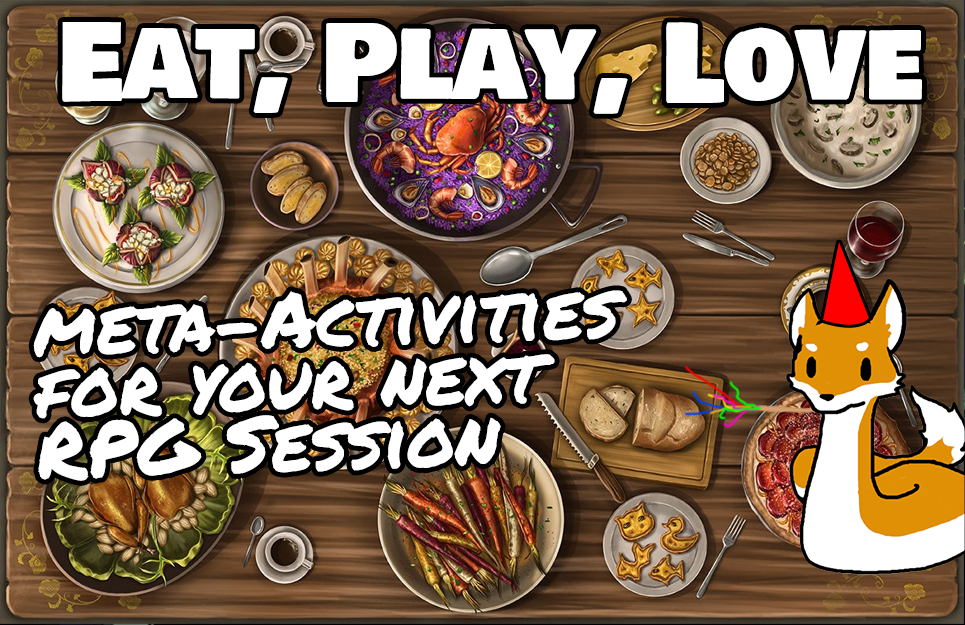Members of the Know Direction Network staff will periodically addresses hotly debated questions posed by the community. This week’s question comes from TheJokerPlays on the Know Direction Discord channel.
I’d love to read your take on writing stuff into your universe that, often much to the chagrin of the GM, the players never discover. And then having the discipline to not say anything about what they missed. In video games the same concept occasionally exists. Dark Souls 1 had a notorious area that could only be discovered behind a secret door. And it was entirely optional.
What does our staff do with the dangling threads and unsolved mysteries of our campaigns? Ryan, Vanessa, James, and Randal weigh in!
RYAN COSTELLO
On the Monsters Inc director’s commentary track, it’s stated than an unofficial mantra at Pixar is that they polish under every table. Basically, even if they think the viewer is only going to see an asset from a certain angle, they give as much attention to what the audience sees as what they don’t. On the one hand, that can come off as a waste of energy. On the other hand, if plans change, they are better equipped for it than they could be.
As with most things, when I GM, I like to create a logically consistent world. That often means being able to answer questions that never get asked. At my peak, I was GMing a home game with Jay, Matt, Cathy, and them, and running two weekly games at Quantum Cards (my pre-Chimera FLGS). They were all homebrews set in the timelibe, and I’d cherry pick details that I established in one campaign to flavour another. One example, my home game PCs were looking for diamonds and I offhandedly mentioned that they were easier to find now that the mindflayer’s grip on the mines has been loosened. Jay exclaimed “when did that happen‽”
Effectively, no one knew everything that was happening in my world, but I knew more than anyone and the players benefited from it. It was easier that I never wrote anything down, they were just ideas floating in my brain that I created passively and could reference off hand. When it comes to published content, my attitude is different.
I have been vocally against how haunts are executed in print, but that’s the combination of having only two solutions, one of which requires a specific class or knowledge of the haunt’s backstory. Even though the haunt becomes 200% more interesting and ∞% more interactive when the players know the haunt’s backstory, far too often they are presented with little to no way for the party to learn the backstory.
I’ve also been critical with other situations where printed adventures give more information than the PCs can easily access, but that just compounds my issues running published adventures. It is a stressful exercise of memory recall that makes me incredibly self-conscious and ruins one of my favourite aspects of the game, GMing. That’s not a reason to change how that information is presented, only one more reason it’s very much not for me. To me, the ideal adventure is one where the PCs could jump around freely as their whim takes them, like so many Super Mario Bros warp zones. For those warp zones to matter, the content they skip over has to exist.
VANESSA HOSKINS
When I create a world, a story, a plot, an item, or even a class feature, it needs to have a story. That said, it might just be a loose fabrication of story elements in my mind or it might be some elaborate piece of fiction that I’ve woven to bring a concept into a game. Regardless of how extensive that backstory is, everything is there for a reason.
When a player comes across a bit of that story, I’m thrilled to have it at the ready to share and make the game world richer for that player. I encourage my players to ask questions and seek knowledge. I want them to ask about the strange book of limericks that the guard carries. I want them to ask about why there’s a mimic in this dungeon and how they got there. I want them to know all the stories I create.
Alas, they’ll never know all of them. For them to know that we’ll spend so much time waxing poetic about this world I’ve created and not nearly enough time playing the game we all came together to experience. But the story is there, waiting for them to find. It’s a bit of extra treasure that goes beyond gold, beyond artifacts; just a bit of magic to brighten up the world and help it feel authentic.
My players will never find all the story, but that’s ok. They’ll find the story that they’re interested in. They’ll find the story that they ask about. That’s good enough for me.
JAMES BALLOD
I think of this as 2 questions, actually. The first is “What is the tone of your campaign” and the second is “Is anything important being missed?”. To answer the first part, if you make a campaign that has a lot of history or lore players believe they won’t understand or find, they’ll stop searching. You can unintentionally sabotage your players self-confidence to explore. If your campaign is more action-toned, you may have everything put front and center for players to make quick, effective decisions. If your campaign is more investigation or diplomacy-based, players will probably be more likely to search down leads, check under every rock, and cast Legend Lore.
To answer the second question you have to be introspective. Yes, a character/item/etc may be important to your campaign, but is it important to your players? A green key card holds no more weight than a blue key card. People playing RPGs usually don’t have all day to investigate things, and generally feel bad if they feel like their wasting others time, so if there’s something that doesn’t seem super important to themselves or the group, they’ll let it ride in favor of team cohesion. You should also examine how your campaign is designed. If players not finding a door, saying the right word, or failing a skill check somehow auto-fails them, your players may have never had a fair shot anyway.
Personally, I usually tell people after the consequences are out of their control anymore. Especially if they don’t understand why something happened during a scenario. Sometimes Pathfinder Society is really bad with this, like Labyrinth of Hungry Ghost, which is an awesome scenarios your players just have to be ok with not understanding.
RANDAL MEYER
I have a habit of going off-script as a GM, whether running homebrew or printed modules. If I have a lot of this extra flavor that I can draw upon, it enables me to build upon something that is already relevant to the story. This either engages the PCs more because they are familiar with the information or it allows them to become more familiar with interactions later on that would normally just be an encounter in which they don’t have the backstory. I also have a bad habit of telling the players the backstory of various things once they are no longer going to be able to use that information to their advantage in any way. When I can, I will reveal it through monologues, rumors, eavesdropping, or perhaps flashbacks and visions to try to keep as much immersion in the game as I can. For this reason, I am a fan of the extra historical details that are necessary for me to have means and motives for baddies, although I have read through an encounter or two that just had too much information that just wasn’t going to see the light of day no matter how I tried.






